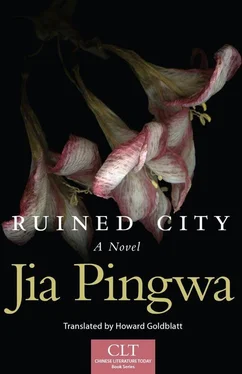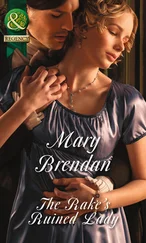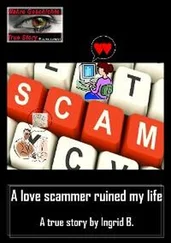If I say you’re all right, you’re all right, whether you are or not .
If I say you’re not all right, you’re not all right, even if you are .
His listeners clapped their approval. Although the old man had not said who the target of his doggerel might be, they had no trouble figuring that out on their own. As it sped through the city, Huang Defu naturally got wind of it and placed a phone call to the police, ordering them to stop the old man from spreading rumors about the mayor. When he was taken into custody, they learned that over the past decade he had lodged repeated complaints with the government. Why? It turned out that ten years before, he had been a private schoolteacher whose principal unfairly kept him from being transferred to a public school. His appeal to the provincial authorities had been unsuccessful. So he had taken up residence in Xijing and appeared outside government offices on a regular basis to lodge complaints, both oral and written, and stage sit-ins. In the end, seeing no way forward and no way out, he’d begun to lose contact with reality and stopped lodging complaints. But instead of returning to his home, he wandered the streets. Since he had done nothing illegal, after ten days in custody the police put him in a car and dropped him off three hundred li from town. He was back within days, this time with a beat-up handcart, which he pushed up streets and down lanes as a junkman, regularly surrounded by idlers who wanted more of his doggerel. This time he declined, limiting his utterances to loud, long shouts of “Junkman! Collecting junk and scraps!” His voice was heard on the street every day, early and late. The other commonly heard sound came from the flute player atop the city wall. One resembled the howl of a beast, the other the moan of ghosts, two sounds echoing back and forth and drawing cries from hundreds and thousands of birds nesting in the bell and drum towers.
On this day, after pulling his iron-wheeled handcart around town for hours without picking up a single piece of scrap, the old man went to the square in front of the Yunhuang Temple to watch the qigong masters teach breathing exercises. When he spotted people crowding around a fortuneteller in front of a low wall, he walked over to see what the coming year might bring for him. “Old-timer,” people said, “this diviner is a master from Mount Emei who predicts major events. He doesn’t have time to worry about little people and their future.” They elbowed him out of the way.
The taunts turned the old man’s face bright red. Just then it started to rain, large drops that beat a tattoo on the earth, like coins falling from heaven, sending a cloud of dust into the air and turning the ground soggy, with bubbles forming and popping up here and there. The crowd dispersed. “A timely rain,” the old man said as he abandoned his cart and ran to the temple gate, where he stood under the flagpole to keep dry. Either because he was bored or because his throat itched, he sang his doggerel at the top of his lungs.
He did not know that Abbot Zhixiang, who was sitting inside, heard him singing. Just inside the temple gate stood an unusual rock; most of the time it was nothing special, just a rock, but in inclement weather, the graphic outline of a dragon appeared on it. With the rain still falling, Abbot Zhixiang went out to look at the rock and listen to the words being sung: “… the officials get rich, the vendors prosper, the poor move aside…” He was lost in thought when a thunderclap sent an explosive rumble down onto the gate. He looked up and saw seven crisscrossing rainbows in the western sky, and was reminded of the day that the four suns had appeared in the sky. The thought occurred to him that something unusual was once again about to occur in Xijing. His prediction was confirmed the following day, when he heard on the radio that a relic of Sakyamuni had been discovered in the Temple of the Dharma Gate, no more than two hundred li from Xijing. The discovery of the Buddha’s bone had rocked the mundane world, and that night, as the abbot sat in his meditation room, he had an epiphany. “These days,” he muttered, “there are hardly any wolves, vermin, tigers, or panthers still in the world, for they have all been reincarnated as human beings. That is the source of so much evil. Meanwhile, great numbers of qigong masters and people with odd talents have arrived in Xijing in recent years. Maybe the heavens sent them to save humanity.” The Yunhuang Temple had its own magical powers. With so many second-rate qigong masters and unique individuals coming down from the mountains, he could make a contribution. So he posted a flyer to announce that he was starting a qigong class in the temple, taking on students who wanted to learn elements of the exercise.
He held three sessions, each of them attended by a student named Meng Yunfang, who worked at the Research Institute of Culture and History and found little that did not interest him. Seven years earlier, a fad had swept the city prescribing red tea fungus as a cure-all and health tonic. Not only did he turn his home into a laboratory filled with vials of red fungus, he gave the stuff away all over the neighborhood, and in the process met a tea aficionado. He wound up marrying her. Husband and wife soon after took up the laying on of hands, which they believed was a stronger cure-all than red tea fungus. That lasted six months, until the next fad came along — vinegar eggs. A drink made of chicken blood followed that, and like all the others, it caught their fancy. Unfortunately, the chicken blood produced an undesirable side effect: the wife’s pubic hair fell out. None of the doctors could help, so when she learned that a neighbor had a secret remedy handed down from his ancestors, she sought it out. It did the trick, as the hair began to grow back. That particular neighbor, a year older than Meng Yunfang, was a former mahjong partner. When they met on the street one day, he greeted his benefactor with a cordial nod, only to be repaid with a short laugh. He went out and bought an expensive gift, telling his wife, “Since he fixed your problem, you can thank him with this.” She returned from delivering the gift in high spirits, only to find a letter from her husband demanding a divorce. “Please sign this divorce decree,” it said. “You are my wife, which means you are clothed in the presence of your father and naked in the presence of your husband. Whoever heard of a wife letting a perfect stranger see her privates?”
Six months after divorcing his first wife, he married a woman named Xia Jie and moved with her into a new single-story house separated from the Yunhuang Temple by a low wall. After the wedding, Meng spent most of his free time gazing across the wall at the temple, listening to the music as he watched the monks’ activities. After joining the qigong sessions, whenever he heard the daily clang of a gong, he scaled the wall, spry as a monkey. On one occasion he was met by Abbot Zhixiang, who stopped him from running off by saying, “Don’t I know you?”
Meng nodded. “The abbot has a wonderful memory. Apparently you remember me.”
“Of course I do. Did that plant of yours die?”
“Yes,” Meng replied, “and everything turned out just as you had predicted.”
“What about your friend? Did he recover from his illness?”
“He did, some time ago. But if you knew he was sick, then you must be an immortal.”
“I am nothing of the sort. If I were, I would have asked your famous friend to stick around for a friendly conversation.”
Meng made haste to say, “I will bring him over to pay his respects to the abbot one of these days.”
The very first qigong session turned Meng Yunfang into a devotee who never passed up an opportunity to spread the word that the exercises had endowed him with unprecedented qi. When friends called, he sat cross-legged to circulate the qi. He even tried to transmit it to his friends, then asked if they felt different. When they said no, it was time for an incantation, chanted with such fervor that he foamed at the mouth and broke out in a sweat. When that did not work, his friends had a good laugh.
Читать дальше


![Matthew Vincent - [you] Ruined It for Everyone!](/books/216429/matthew-vincent-you-ruined-it-for-everyone-thumb.webp)









